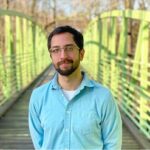Depression Study
Depression is a serious psychological condition that affects approximately 16 million American adults every year and 1 in every 8 adolescents, and it is on the rise in vulnerable groups such as children and the elderly.1-8 Complicating the care of depression is the high rate of treatment resistance, meaning that even while receiving care or taking medication, the individual still experiences symptoms of depression. 3, 9-10 This leaves many patients in need of a solution for their depressive symptoms.
To address the needs of individuals experiencing medication resistant depression, the Life University NeuroLife Institute, in collaboration with the Center for Chiropractic Research and the University of Georgia, are conducting a clinical trial evaluating the effectiveness of a team-based applied clinical neuroscience approach to treatment resistant depression. Individuals may qualify for participation in this research study if they are:
Over the age of 18
Have been diagnosed with depression
Have/had been on medication for at least 3 months
Have limited or no relief of depression symptoms
The study will involve visits to the NeuroLife Center on the Life University campus in Marietta, GA. During the 6-weeks of focused care, visits to the center could be required several times per week, and a few separate history and exam assessments with the NeuroLife team may be requested over the 18-week period. Four assessment visits will also be scheduled at the Life University Center for Chiropractic Research (CCR) facility located at 1 Baltimore Place, NW suite 100 in Atlanta, GA. The assessments in the CCR will include non-invasive evaluation of your brain wave patterns using electroencephalography (EEG) along with balance and movement assessments.
Qualified participants receive study treatment and care at no cost and can earn up to $150 over the course of the 18-week study.
For more information or to see if you qualify, contact the NeuroLife center at 770-426-2829.
This study has been approved by the Life University IRB.
TEAM MEMBERS
Michael A Longyear, DC (DACNB, CCSP): Co-Principal Investigator (Clinical)
 |
Dr. Longyear is a passionate and committed Doctor of Chiropractic. His enthusiasm for chiropractic Applied Clinical Neuroscience is matched only by his support of Michigan athletics. He graduated from Parker University in August of 2013 earning concurrent to his doctorate in chiropractic a bachelor’s degree in Health and Wellness. On his way to garnering class valedictorian, he was honored in several areas of leadership that included both campus and community efforts. He earned the Robert Czepoth award for Leadership. His scholastic achievements earned him several scholarships including the prestigious Parker University President’s Scholarship. While a student he served on institutional and student committees to include Student Senate Executive Cabinet and Community Service, while also serving in student-oriented clubs such as the Functional Neurology, Motion Palpation, and Sports clubs. He also co-organized the first ever Adjust-A-Thon which was a student-centered, large scale event. Select experienced field doctors were brought on campus to demonstrate expertise in chiropractic to student-based audiences often ranging 300-400 in size. Donations were accepted and given to local charities such as Toy for Tots, Animal Services Protection against Cruelty to Animals, and Dallas Homeless programs. Dr. Longyear also served annually for the “Celebrate Jesus – SoupMobile” program which served to provide rooms, gift baskets, and dinner for the homeless over the Christmas holiday. He also spearheaded a program known as “Transform Carey Middle School” where every August they committed to provide quality educational programs on spinal health, bookbags, and aid in cleaning the area in and around the school. Dr. Longyear is well known by faculty, students, and chiropractors for his love of Applied Clinical Neuroscience and even more so for his deep and unwavering compassion for serving mankind. |
Stephanie G. B. Sullivan, DC, PhD: Co-Principal Investigator (Research)
 |
Stephanie Sullivan, D.C., Ph.D. is a graduate of Life University and the University of Georgia’s Interdisciplinary Neuroscience Program within the Biomedical and Health Sciences Institute. Dr. Sullivan serves as the Director of the Life University Dr. Sid E. Williams Center for Chiropractic Research (CCR). Her research focus includes development of the Well-being and Health Expression Evaluation List (WHEEL), cognitive efficiency and the effect of chiropractic and applied clinical neuroscience care on brain-body neuroplasticity.. |
Dylan Saulsbery, DC (DIBCN, DIBE): Co-Investigator
 |
Dr. Dylan Saulsbery is one of the functional neurologists at NeuroLIFE Institute. Dr. Saulsbery always knew he wanted to be a chiropractor after being exposed to the profession at a young age. Growing up, his family was very active and he was involved in sports from basketball and skateboarding to riding dirt bikes and wakeboarding. He realized early on that with chiropractic care he was able to move better and play harder with regular treatment. He decided to go to The Pennsylvania State University and study Kinesiology where he discovered his passion for the nervous system and how it functions. After earning his bachelor of science degree, he went on to attend Palmer College of Chiropractic Florida and earned his Doctor of Chiropractic degree. While in chiropractic school, he enrolled in two post-graduate programs in neurology and electrodiagnostic medicine where he received his advanced training. Dr. Saulsbery is now board certified in Chiropractic Neurology and Electrodiagnostic Medicine. He is passionate about his work and continues to try and learn new ways to help his patients, but he still finds time to relax a little and have fun. Growing up in Pittsburgh, Pennsylvania, it is no surprise he is a huge Steelers and Penguins fan. In his free time, he enjoys watching his teams play games (and win championships). He has always been very active and tries to stay that way by paddle boarding, hiking, and running trails as often as he can. He is happiest when he is outdoors spending time with his family and friends. |
Emily Drake: Co-Investigator
 |
Emily Drake is the research lab coordinator for the Sid E. Williams Center for Chiropractic Research at Life University. She is responsible for coordinating student volunteers and work study students in assistance with current projects, including all equipment and software trainings. She assists principal investigators with current projects and brainstorming ideas for future studies. She graduated Summa Cum Laude with a Bachelor of Science in biopsychology from Life University in 2016. She has worked with the Sid E Williams Center for Chiropractic Research since 2016. Her research interests include neuropsychological research and its clinical implications. |
Mitch Ferguson, MS, EdD: Co-Investigator
 |
Dr. Mitch Ferguson is an experienced counselor and educator with over 30 years of experience in the areas of mental health and education. He received his bachelor’s degree from Auburn University in 1983 (psychology), master’s in clinical psychology from the University of South Alabama (1986), and his EdD from the University of West Florida (2000). He has been at Life University since 2012, where is now a full-time faculty member in the Department of Liberal Studies. At Life U he has taught a wide variety of undergraduate and graduate classes in multiple departments. His areas of research interest include cross-cultural psychology and education, and he has been published in the “International Educator” journal. |
Dr. Negin Navaei, Ph.D., RDN, LD: Co-Investigator
 |
Dr. Negin Navaei, Ph.D., RDN, LD is an Assistant Professor and Program Coordinator for the M.S. in Clinical Nutrition in the Department of Nutrition at Life University. She obtained her undergraduate degree in Dietetics and Nutrition from Georgia State University and received her Ph.D. in Human Sciences with concentration in Nutrition from Florida State University. She joined the faculty in the College of Graduate and Undergraduate Studies in 2017 where she teaches both undergraduate and graduate nutrition courses. Dr. Navaei’s populations of interest include aging individuals (middle-aged/older) and, particularly, postmenopausal women, as the physiological changes that occur throughout the menopausal transition and postmenopausal period accelerate the development and progression chronic diseases and conditions, particularly vascular dysfunction and cardiovascular disease. Her research is focused on: identifying foods, particularly those rich in polyphenols at exert functional effect on human physiology and health; evaluating underlying mechanisms by which nutrition and food-related interventions induce clinical responses; and informing evidence-based practice and dietary recommendations. Select Publications:
|
Rebecca Shisler Marshall, PhD (CCC-SLP): Co-Investigator
 |
Rebecca Shisler Marshall, PhD (CCC-SLP) is an Associate Professor in the Department of Communication Sciences & Special Education at the University of Georgia for nineteen years. She completed her master’s and PhD in Experimental Cognitive Psychology at the University of South Carolina as well as her Master’s in Speech-Language Pathology. Her experience in cognitive psychology converged with speech-language pathology and began her work research studying attention post-stroke, especially with individuals with aphasia. Rebecca is also a mindfulness instructor, certified life coach and yoga instructor, reiki master, and shamanic practitioner. This evolved her current research interests of integrative treatments such as mindfulness for aphasia, attention, and aging. |
Dominic Fetterly, D.C.: Co-Investigator
 |
Dr. Fetterly practices in Marietta, GA at the NeuroLIFE Institute on Life University’s campus. He is a graduate of Life University and is a board-certified neurologist through the American Chiropractic Neurology Board.. |
